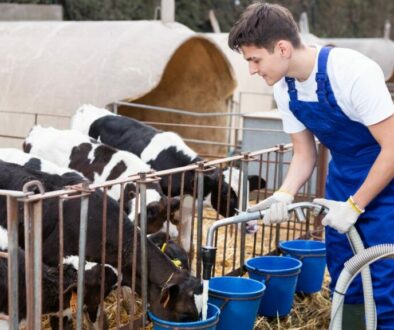How To Become A Gardener?
Maybe you’ve always loved the great outdoors and have a passion for nurturing plants and watching them grow. Or maybe you’re looking for a new career path that allows you to work with your hands and spend time outdoors. Whatever your motivation, becoming a gardener can be a rewarding and fulfilling career choice. In this article, we’ll explore the steps to becoming a gardener, the skills needed to succeed in this industry and the benefits of working in this field.
Steps to Becoming a Gardener
Becoming a gardener typically requires a mix of education and hands-on experience. Here are some steps you can take to get started:
- Gain Basic Knowledge
Begin by researching gardening and horticulture. Read gardening blogs, visit local gardening centers, and attend gardening classes to learn the basics.
Gardening can be a rewarding and fulfilling hobby, but it requires a lot of knowledge and patience to be successful.
When it comes to gardening, there is always something new to learn. You’ll want to learn about different plant species and how they grow and thrive in different environments. For example, some plants require full sun, while others need partial shade. Some plants require more water than others, and some require specific types of soil to thrive.
You can also consider enrolling in a horticulture or gardening program at a community college or vocational school. These programs can provide you with in-depth knowledge of the science behind gardening and horticulture. You’ll learn about soil science, plant propagation, pest management, and more. - Gain Hands-On Experience
Gaining hands-on experience is essential for becoming a successful gardener. You can start by volunteering at local parks and gardens. Many public parks and gardens rely on volunteers to maintain their green spaces, and volunteering can provide you with valuable experience and connections in the industry.
You can also consider starting a home garden to practice your skills and learn more about different plants’ needs and requirements. Starting a garden can be a lot of work, but it can also be very rewarding. You’ll learn how to prepare the soil, plant seeds, and care for your plants as they grow.
Joining a gardening club or group can also provide you with opportunities to learn from experienced gardeners and get tips and advice on how to improve your skills. You’ll also have the chance to share your own experiences and knowledge with others who share your passion for gardening. - Get Certified
Consider obtaining professional certifications, such as those offered by the National Association of Landscape Professionals (NALP) and the Professional Landcare Network (PLANET). Certification can help demonstrate your expertise and proficiency to potential employers.
Getting certified can also help you stand out in a crowded job market. Employers are always looking for skilled and knowledgeable workers, and having a certification can make you a more attractive candidate for job openings.
Becoming a successful gardener takes time and dedication. By gaining basic knowledge, gaining hands-on experience, and getting certified, you can develop the skills and expertise needed to succeed in this rewarding field.
Skills Needed for Becoming a Gardener
Becoming a successful gardener takes more than just knowledge and experience. Here are some essential skills needed for becoming a gardener:
Physical Strength and Stamina
Gardening can be physically demanding, so being in good physical shape is essential. You’ll need to be able to lift and move heavy objects, such as bags of soil or large plants. You’ll also be on your feet for long periods, so stamina is critical.
It’s important to take care of your body when working in the garden. Stretching before and after gardening can help prevent injury and reduce soreness. If you’re feeling tired or overheated, take a break in the shade and drink plenty of water to stay hydrated.
Attention to Detail
Gardening requires a lot of attention to detail. You’ll need to be able to identify and address plant diseases, pests, and other challenges that can impact the health and growth of plants. You’ll also need to be mindful of planting and maintenance schedules, ensuring that each plant receives the right amount of water, fertilizer, and sunlight.
One way to stay on top of plant care is to keep a gardening journal. Record when and how much you water each plant, what fertilizer you use, and any issues you notice. This can help you identify patterns and make adjustments to your gardening routine.
Creativity
Creating and maintaining beautiful gardens requires creativity. You’ll need to be able to envision how different plants will look together and select the best colors and textures to create an aesthetically pleasing design.
Consider incorporating unique elements into your garden design, such as a water feature or sculpture. You can also experiment with different planting arrangements, such as a raised bed or container garden. Don’t be afraid to try new things and make your garden a reflection of your personal style.
Patience
Gardening is a process that takes time and patience. Plants don’t grow overnight, and it can take several seasons to see the full results of your hard work. It’s important to enjoy the journey and not get discouraged if things don’t go as planned.
Remember that gardening is a learning experience, and even experienced gardeners make mistakes. Embrace the challenges and take them as opportunities to learn and grow as a gardener.
What is a Gardener?
A gardener is a professional who specializes in growing and maintaining plants, flowers, and trees. They are dedicated to creating and maintaining beautiful outdoor spaces that are both visually appealing and functional.
Gardeners have a wide range of responsibilities, from designing landscapes and gardens to maintaining them on a day-to-day basis. They work with a variety of plants, including flowers, vegetables, and trees, and are knowledgeable about the specific needs of each type of plant.
One of the most important skills that a gardener possesses is a keen eye for detail. They are able to identify potential problems with plants before they become serious issues, and can take steps to correct them before they cause any damage. Additionally, gardeners are skilled at pruning and shaping plants to create beautiful and unique designs.
In addition to their technical skills, gardeners are also excellent communicators. They work closely with their clients to understand their needs and preferences, and are able to offer advice and guidance on how to best achieve their desired outcomes. They are also able to work effectively with other professionals, such as landscapers and architects, to create cohesive and beautiful outdoor spaces.
Gardeners may work in a variety of settings, including nurseries, botanical gardens, golf courses, and private residences. They may work independently or as part of a larger team, and may specialize in particular types of plants or landscapes.
Overall, gardeners play an essential role in creating and maintaining beautiful outdoor spaces. Their expertise and dedication to their craft help to ensure that our gardens and landscapes remain vibrant and thriving for years to come.
The Benefits of Working as a Gardener
Working as a gardener can be an incredibly rewarding career choice. Here are some of the benefits:
Working Outdoors
Gardeners get to spend most of their workday outdoors, surrounded by beautiful landscapes and greenery. This can be an excellent choice for those who enjoy working outside and don’t want to be stuck in an office all day.
Working outdoors has numerous benefits for your physical and mental health. Being exposed to natural light and fresh air can boost your mood, reduce stress levels, and enhance your immune system. Additionally, gardening involves physical activity, which can help you stay fit and healthy. Whether you are planting, pruning, or weeding, gardening can be a great way to get a full-body workout.
Creative Satisfaction
Gardening allows for a lot of creativity. Gardeners get to design and create beautiful spaces that bring joy and satisfaction to themselves and others.
Designing a garden involves more than just planting flowers and shrubs. It requires an understanding of color theory, texture, and form. Gardeners need to be able to envision how different plants will look together and how they will change over time. They also need to consider factors such as soil type, climate, and sunlight when creating a garden design.
Creating a beautiful garden can be incredibly satisfying. It allows gardeners to express their artistic side and create something that will bring joy to others. Whether you are designing a small urban garden or a large country estate, gardening can be a fulfilling and creative career choice.
Job Security
There is a growing demand for skilled gardeners, meaning that job security in this field is generally good.
Gardening is a profession that is always in demand. As more people become interested in sustainable living and organic gardening, the need for skilled gardeners continues to grow. Additionally, many public and private organizations require the services of gardeners to maintain their grounds. This means that there are plenty of job opportunities for those with the right skills and experience.
Opportunities for Entrepreneurship
Many gardeners start their businesses and work for themselves. Starting a gardening business allows you to set your schedule, choose your clients, and take control of your career.
Starting a gardening business can be a great way to turn your passion for gardening into a profitable career. As a self-employed gardener, you can choose your clients and set your own rates. You can also decide which services you want to offer, such as garden design, maintenance, or landscaping. This gives you the flexibility to create a business that suits your skills and interests.
Running a gardening business also allows you to be your boss. You can set your schedule, work from home, and take control of your career. This can be incredibly empowering and rewarding, as you are responsible for your success.
Becoming a gardener requires a mix of education, experience, and skills. It can be a fulfilling and rewarding career choice for those who love the great outdoors, enjoy working with their hands, and have a passion for plants and landscaping. Whether you work for a company or run your own business, gardening can provide job security, creative satisfaction, and opportunities for entrepreneurship.




